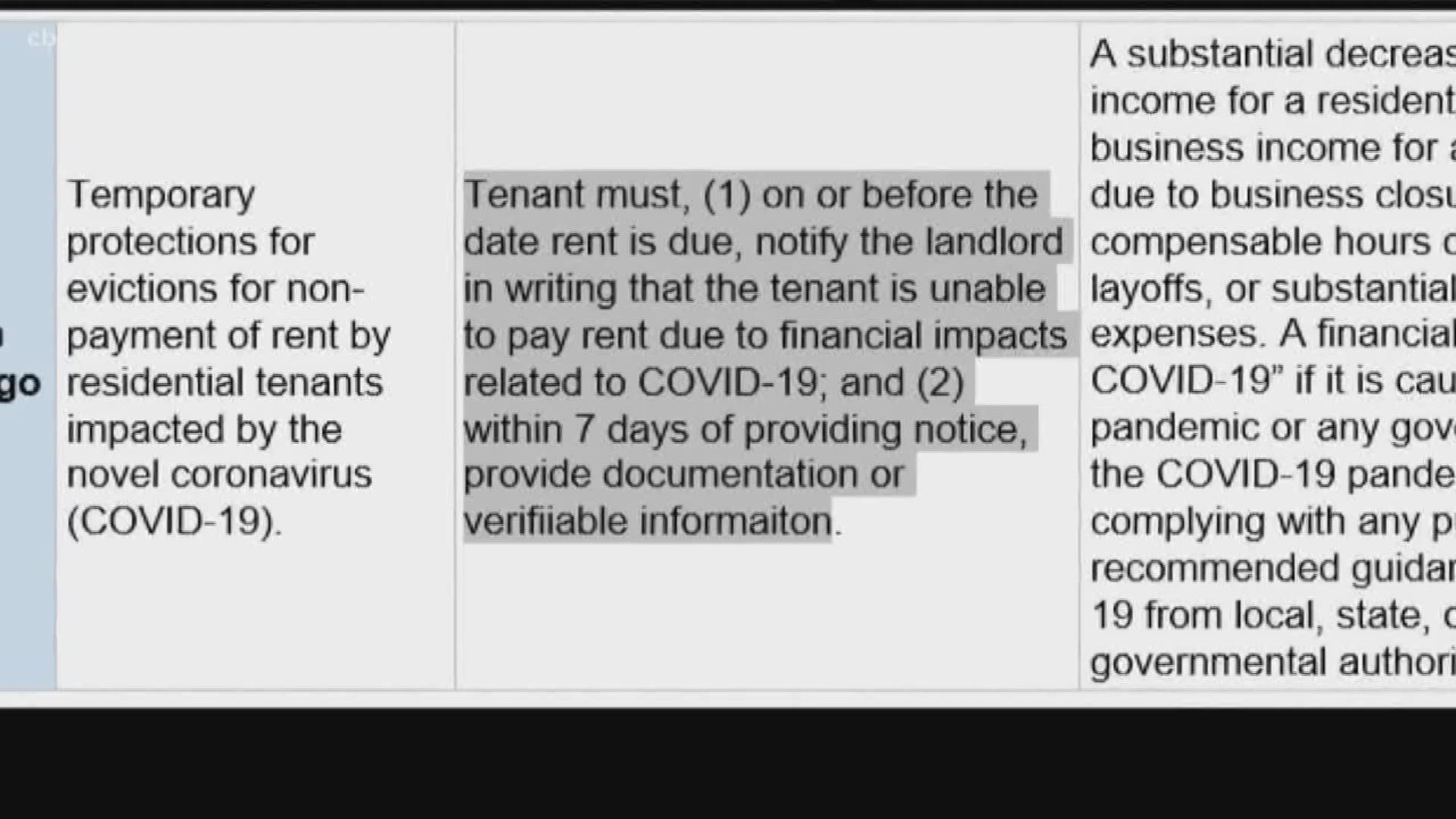SAN DIEGO COUNTY, Calif. — Even with San Diego’s new eviction moratorium in place, renters struggling due to the coronavirus pandemic aren't automatically protected.
“We know as jobs disappear rent payments do not. That's why we are taking action,” San Diego Mayor Kevin Faulconer said at a press conference two weeks ago.
Now, a new website is designed to assist tenants and landlords in San Diego amid the city's recently enacted eviction moratorium for those suffering economic hardships as a result of the COVID-19 pandemic, the city announced Monday.
The site, created by the San Diego Housing Commission, provides information regarding the requirements for tenants to qualify for rent relief, which includes supplying landlords with proof of a substantial loss of income or proof tenants have incurred medical bills related to COVID-19.
In turn, landlords cannot evict someone for not paying rent due on or after March 12. However, it will not relieve a tenant of the requirement to pay rent or restrict a landlord from recovering rent at a future time.
RELATED: A drug might help coronavirus patients. Will lupus patients pay the price?
Tenants have six months from March 25, the day the moratorium ordinance was enacted by the San Diego City Council, to make any unpaid rent payments.
The emergency law temporarily halting evictions in San Diego will last until May 31.
"Step one was putting the moratorium in place," City Council President Georgette Gomez said. "Step two is making sure residents and small businesses know what they need to do to be protected by it."
But just days before that dreaded rent payment Wednesday, California housing rights attorney Elena Popp said many people haven't read the fine print - the part of the ordinance that requires tenants to take action on or before rent is due.
“[Renters] are completely confused by these mish-mosh of laws, measures, policies. Tenants in San Diego probably do not realize that right now they have two days to send a letter to their landlord saying 'I cannot pay my rent for these COVID-19 related reasons,'” said Popp.
News 8 asked Assemblyman Todd Gloria (D) San Diego, what happens in six months if the stimulus check combined with the unemployment benefits are not enough to make up six-months worth of rent.
“The hope would be that landlords would work with their tenants to do installments to pay back,” said Gloria.
Assemblyman Gloria also hinted at a statewide relief plan for those whose problems continue piling up.
“I will be going back to the Capitol to work on a statewide stimulus. We're all in this together,” he said.
The website can be accessed at www.sdhc.org/evictionban.

NEWS 8 joined forces with The San Diego Foundation to raise IMMEDIATE, EMERGENCY FUNDS for our most vulnerable neighbors in need. Here is how you can help.
BACKGROUND:
According to the CDC, coronavirus (COVID-19) is a family of viruses that is spreadable from person to person. Coronavirus is believed to have been first detected in a seafood market in Wuhan, China in December 2019. If someone is sick with coronavirus, the symptoms they may show include mild to severe respiratory illness, cough, and difficulty breathing.
Currently, there is no vaccine, however, the CDC suggests the following precautions, along with any other respiratory illness:
Avoid close contact with people who are sick.
Avoid touching your eyes, nose, and mouth.
Stay home when you are sick.
Cover your cough or sneeze with a tissue, then throw the tissue in the trash.
Clean and disinfect frequently touched objects and surfaces using a regular household cleaning spray or wipe.
Wash your hands with soap and water for a minimum of 20 seconds.
The CDC also says facemasks should only be used by people who show symptoms of the virus. If you’re not sick, you do not have to wear a facemask.

